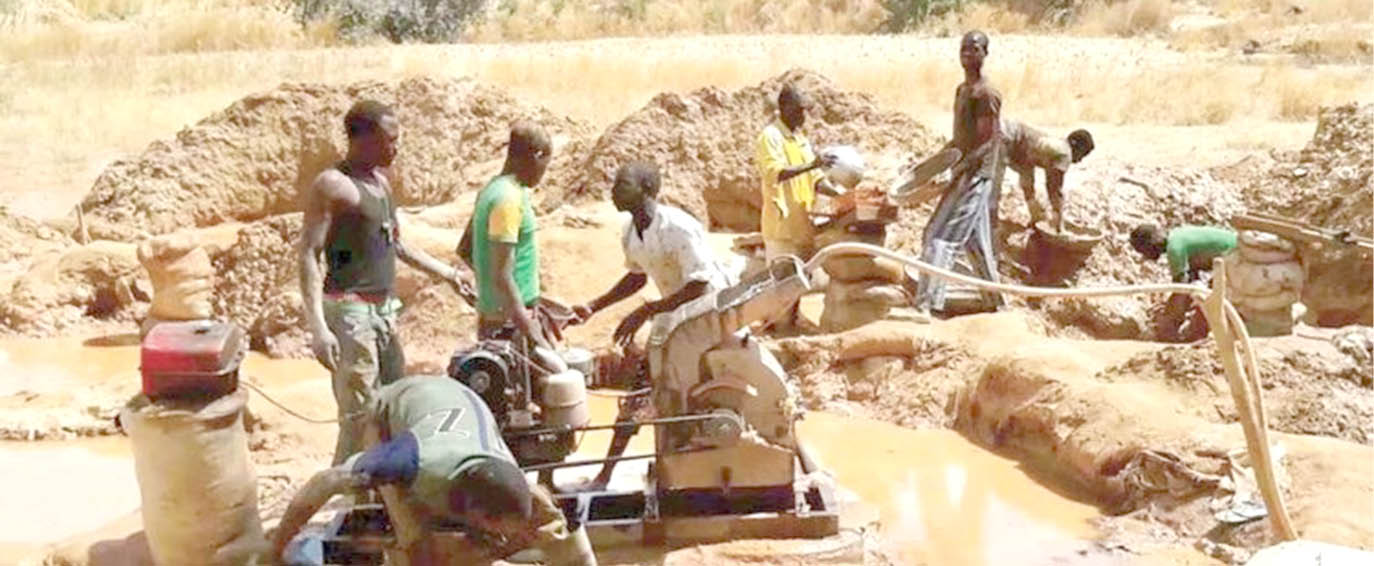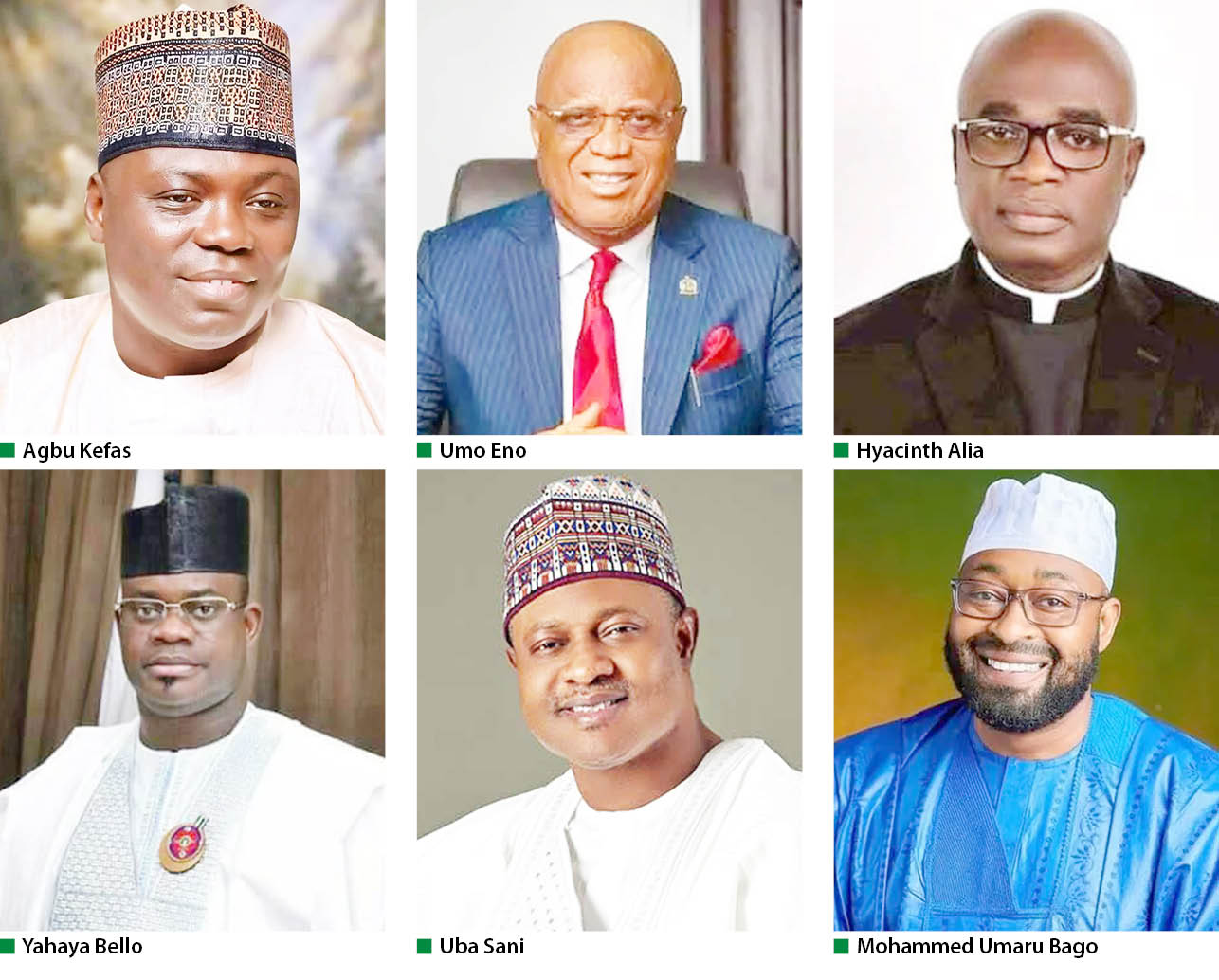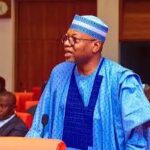From Magaji Isa Hunkuyi (Jalingo), Iniabasi Umo (Uyo), Hope Abah Emmanuel (Makurdi), Tijani Labaran (Lokoja), Abubakar Akote (Minna) & Mohammed I. Yaba (Kaduna)
Most states in Nigeria are endowed with solid mineral resources but are yet to harness them for the benefit of the people, investigation by Daily Trust on Sunday has shown.
Experts said if well harnessed, these untapped mineral resources could boost the socio-economic status of such states as they could get enough internally generated revenue instead of relying on allocations from the federal government.
Over the years, states have been claiming that they are constrained by relevant laws that vest control of mineral resources on the federal government.
The 1999 Constitution (as amended), Section 44 (3) and item 39 Schedule II of the Exclusive Legislative List vests the control and management of natural resources and hydrocarbon operations on the federal government for the common good of citizens.
Also, the Nigerian Minerals and Mining Act, 2007 in Section 1(1) re-emphasises that the control of and property in minerals in Nigeria is vested in the federal government.
Checks show that illegal mining is now the norm, with calls on the need for governments at all levels to check activities of foreigners, who compromise community leaders in plundering mineral resources.
Illegal mining activities are happening at a time many of these states are wallowing in poverty. The insecurity in Nigeria and some neighbouring countries has been linked to the scramble for resources by foreigners.
On Wednesday, President Bola Tinubu, while meeting with the United Nations secretary-general, António Guterres, at the UN headquarters in New York, said African nations would no longer accept a situation where human rights advocacy is used by wealthy and powerful nations to stop developing economies from dealing decisively with malign actors who siphoned and smuggled out the continent’s vast mineral resources while smuggling in western-made weapons, which enriched the wealthiest economies in the world at the parasitic expense of African stability and wealth creation.
“We are facing the great challenge of scavengers ravaging our lands and oppressing our people on illegal mines—taking our gold and mineral wealth back to developed economies by stealth and violence against Nigerians.
“Where one’s human right ends, the rights of another begin, most especially for self-protection. If we fight, they say ‘human rights,’ but we will now be aggressive and we will question motives. We will stop what is happening in our land. We require your effective collaboration,” he said.
The Minister of Solid Minerals Development, Dele Alake, had on September 4 given illegal miners a 30-day deadline to join a miners’ co-operative or face the full wrath of the law.
Alake spoke in Abuja during the unveiling of the ‘Agenda for the Transformation of the Solid Minerals for International Competitiveness and Domestic Prosperity.’
He said that from October, all illegal miners would be arrested by the police, who would be drafted to fish them out as the ministry was introducing a security tax force, the mines police inclusive, to combat illegal mining and smuggling across the country.
“The new Mines Surveillance Security Task Force will coordinate the mines police and proactively address high risk incidencts of breach of mining laws.
“The federal and state governments will also be encouraged to allocate prosecution of cases against illegal miners to competent courts,” he said.
Locals in most of the states who spoke to our reporters urged political leaders to address the biting poverty in the midst of plenty.

Taraba’s 16 LGAs have unique minerals
Findings reveal that Taraba State is losing billions of naira to untapped solid minerals, which are in abundance.
Each of the 16 local government areas of Taraba State has one solid mineral or another, most of which are illegally mined.
Some minerals found in commercial quantities in the state include blue sapphire, tantalite, gold, barite and uranium.
At the Nguroje illegal mining site, miners were said to be making over N100 million on a daily basis from sale of blue sapphire before many of them were dislodged and arrested.
Taraba is regarded as one of the states with the highest deposit of minerals in Nigeria, including oil, along River Benue.
The absence of organised mining activities in the state, as well as the difficult terrain and lack of a good road network are said to be paving way for illegal miners, who are making huge fortunes without paying revenue or royalties to the state government.
Governor Agbu Kefas had, on June 29 set up a task force chaired by Brigadier-General Jeremiah Faransa (retd) to fight illegal mining.
The task force, it was learnt, arrested over 3,000 illegal miners, including some foreigners.
The arrest generated controversy between the state government and the association of Nigerian miners, North-East chapter.
The association, through its secretary, Salisu Maizare, claimed that the site where its members were arrested was in Adamawa State and not Taraba, insisting that those arrested had legal documents backing their activities.
A miner in Jalingo, Alkassim Yusuf, alleged lack of seriousness on the part of the government.
“I was in Indonesia about 13 years ago and what I saw was wonderful. They are rich in tin, gold, copper, among others. The government gives licences to individuals and groups to mine and in return pay taxes. With this arrangement, it is a win-win situation. I was even at a village where families were engaged in mining; they lived very well. Our government should learn some lessons from there,” he said.
Kogi
According to records from the Kogi State Ministry of Solid Minerals and Natural Resources, the federal government has established about 42 various solid mineral deposits in commercial quantities in the confluence area, while two others were said to be under exploration to determine its level of deposit in the state.
The mineral resources in the state include iron ore, bitumen, gold, coal, crude oil, bauxite and limestone, columbite, marble, clay, sand, silica, mica, feldspar, gypsum, dolomite, gemstones, tantalite and cassiterite
Some of these mineral resources are located in Ajaokuta, Itakpe, Odeke, Obajana, Itobe, Lokoja, Okaba, Mopa and others.
These mineral deposits necessitated the establishment of the Ajaokuta Iron and Steel Company, iron ore Company in Itakpe, ceramic companies at Ajaokuta, cement factories at Obajana and Itobe, and gold processing company at Mopa, including coal mine industries at Okaba, Okobo and Awoo communities in the eastern part of the state.
Akoji Ajibili, an engineer who claimed to be a consultant to an exploration team, said exploration was carried by investors and relevant organisations at Odu, Achigili, Abejukolo and Ochadamu-Ejule in Kogi State, where high grade various mineral deposits have been discovered in large quantities.
“Besides deposit of crude oil in Ibaji and coal in Ankpa local government areas, an exploration team went round Omala, Dekina and Ofu to ascertain the extent of deposits of these mineral resources and many others,” Ajibili said.
He said some of the mineral resources were not explored, owing to insecurity, lack of funding and inability of most of the investors to live up to the corporate social responsibility agreement.
“For instance, the conflict between Okobo community and Eta-Zuma Group (W/A) Limited, a coal mining enterprise in Ankpa, over accusations of illegal mining and encroachment have been hampering operations of the company in the area,” he added.
But a director in the state parent ministry who craved anonymity said the dispute had received Governor Yahaya Bello’s attention and that the state government had been striving to create a secure and conducive environment for residents and potential investors.
Usman Abubakar, a miner in Ajaokuta, said those who clamoured for the state creation during the military era failed to fulfill their promise to self-reliant and continued to rely on allocations from the government. “This is why we are poor,” he said.
Niger
Niger State, in addition to its fertile land, has other mineral resources yet to be fully explored, including talc, gold, ball clays, silica, sand, marble, copper, iron, felsper, lead, kaolin, casserole, columbite, mica, quartzite and limestone.
Observers said that despite having these mineral resources, the state was yet to make anything out of it.
The mining sector in the state was dominated by artisanal miners.
The Commissioner for Information and Strategy in the state, Binta Mamman, said the governor had directed the Commissioner for Mineral Resources to begin immediate enforcement of the ban on all illegal mining activities. He added that existing mining operations in the state were to be audited for compliance with regulations.
The Commissioner for Industries, Trade and Investment, Aminu Suleiman Takuma and his Lands and Survey counterpart, Maurice Magaji, said the state government was taking stock of mineral resources in the state, with a view to harnessing them for the good of the state.
Magaji said, “A lot of people who applied for cadastral at the Federal Ministry of Solid Minerals would just come to the state and begin to work without engaging with the state government and even the regulatory agencies. So, it is important that we take stock of our assets and make judicious use of them for the good of our state.”
Kaduna
The Kaduna Mining Development Company Limited holds over 30 licences and leases, including 11 quarry leases and 21 exploration licenses, covering granite, laterite, gold, tin, columbite, tantalite, iron, manganese, garnet, beryllium, nickel, platinum, cobalt and lithium across different local government areas.
Among the mineral resources are cassiterite (tin-ore) at Kagoro in Kaura and Kurmin Dangana in Jaba local government areas, as well as in other local government areas. Tantalite is located in various areas, including Birnin Gwari, Kagoma, Kafanchan, among others.
Columbite is found in Jema’a, Ikara, Sanga and Jaba local government areas, and is crucial for aircraft and electronics manufacturing. Bismuth, used for pharmaceutical purposes, is available in Gimba and Kinkiba in Soba Local Government Area, and Makarfi in Makarfi. wolframite is in Banki and Giniya hills; gold in Birnin Gwari, Giwa, and Chikun local government areas; nickel at Dangoma village, Jema’a Local Government Area; and gemstones like amethyst, aquamarine and tourmaline across the state.
Dr Nura Sani, the managing director of the Kaduna State Mining Development Company, said the state was rich in diverse mineral resources and was strategically positioning itself as a leading mining destination in Nigeria.
He highlighted the state’s rich mineral history, including gold mining in Birnin Gwari for over a century.
He said tin mining was ongoing in southern Kaduna, Kubau and Lere.
He said the state had partnered with international companies, housing the largest mining investment in Nigeria with a $600m iron and steel integrated plant in Kagarko Local Government Area.
According to him, the state leads in lithium exploitation with a Chinese partnership in Kangimi; and an Australian firm is involved in a jubita project for mining leases.
He said Kaduna aimed to become Nigeria’s premier mining destination, adding, “Gemstones like safayers are mined by artisans, with plans for state involvement due to their high value.
“The state is also focusing on harnessing other solid minerals like amethyst in Ikara. The focus on lithium, given its global significance in green energy, is evident through partnerships in Kurega and Manini. Hong Kong firms are also joining, constructing access roads for tin mining in Gidan Waya, Jema’a Local Government Area, with export arrangements underway.”
Zamfara
Zamfara, where many people have been killed by bandits in the last few years is also said to be rich in mineral resources, including iron ore, gold, chromate, granite, clay, limestone, chamovita, quartz and kaolin.
Mahmud Abdulkareem, a miner in Gusau, said government must work its talk to address poverty.
“It is only the elite that are making fortunes in Zamfara. We have gold in abundance, which, if properly harnessed, our people would not be poor. But sadly, Zamfara is one of the poorest states in the country. Our people cannot even go to farms because of bandits but the elite are mining gold everywhere.
“I want to call on President Tinubu to work towards amending the Nigerian constitution so that states would have power over their resources. They should be paying taxes to the federal government,” he said.
A/Ibom struggling economically despite natural resources
Akwa Ibom State is known to be blessed with seven solid minerals: clay, lead/zinc, lignite, limestone, oil/gas, salt and uranium. However, oil and gas are the only minerals the state is reputed for which have become a huge income earner for the state.
Akwa Ibom is the second largest earner of the 13 per cent derivation revenue among oil-producing states in the country, which recently received N51.545billion from the Federal Account Allocation Committee (FAAC).
Products derived from oil and gas include petroleum, diesel, jet fuel, kerosene, paraffin, heavy fuel oil, liquefied petroleum gase (LPG), petrochemical feedstock, among many others.
Unfortunately, little is known of the usage and revenue generating capacity of other solid minerals in Akwa Ibom like clay, lead/zinc, lignite, limestone, salt and uranium.
Though clay is used in the construction of mud houses in the rural areas, it has not been harnessed for the economic wellbeing of the state, just like other solid minerals which could have translated to job opportunities.
Although successive governments in Akwa Ibom have been able to transform the state with infrastructural developments, establish companies that have employed a few persons; many youths are still unemployed as the state predominantly remains a civil service state.
As such, the National Bureau of Statistics in 2020 report puts Akwa Ibom at 26.82 per cent in its poverty head count rate, 7.25 per cent poverty gap index and 2.74 per cent at the squared poverty index (severity).
When our correspondent contacted the Commissioner for Environment and Solid Minerals, Mr Uno Uno, on why the state government is not taking advantage of the abundant solid mineral resources in the state, he said he was in a noisy area and could not respond to the question.
As at the time of filing this report, he was yet to speak to our correspondent on the matter.
Benue
In Benue State, there are potentials inherent in the 34 solid mineral deposits found across its length and breadth if only it could be harnessed properly for economic viability.
Experts believe the natural potentials could make Benue an economically self-reliant state.
Some of the solid minerals found in the state include coal, limestone, gold, baryte, salt, zinc, gypsum, clay, iron ore, marble, feldspar and gemstone, among others. However, most of them remain untapped.
The immediate past administration of Governor Samuel Ortom had said, “Benue State is estimated to be home to a sizeable number of about 34 solid minerals found in Nigeria, with limestone, gold, baryte, salt among those already identified as commercially viable here.
“River Benue, which lends the state its name, is the second largest inland body of water in Nigeria. The potential exists to grow an agro-industrial economy that will make Benue an economically self-reliant federating unit of Nigeria.”
The state government had last year suspended mining activities in some parts of the state due to the illegality associated with the process. The decision to suspend mining, particularly in Kwande Local Government Area, was said to be aimed at curbing illegal mining in the state.
The state government had advised those with licences from the federal government to mine gold in Kwande to report to the state’s Ministry of Lands, Survey and Solid Minerals for proper documentation, which would be transmitted to the local government council for due process to be observed.
Cement, zinc and gold were recently discovered in large quantities in Kwande Local Government.
Our correspondent reports that mining activities are going on in Kwande, Ogbadigbo, Gboko, Logo and many other places in the state.
The immediate past administration in the state had urged the federal government to include Benue on the list of states to benefit from the 13 per cent derivation revenue funds as a solid mineral-producing state.
Former Governor Ortom had stressed the need for the state to be designated a non-oil producing state to also derive maximum benefits from its natural resources. As at last year, it was believed that exploration of more mineral resources within the state commenced to help boost the internally generated revenue profile of the state which ranks high in mineral deposits in the country.
Experts said the state government could woo investors through the opportunity provided by the abundant minerals deposit so as to further generate jobs, open up rural areas and increase the state’s internally generated revenue.
Meanwhile, Governor Hyacinth Alia has expressed determination, in his blueprint, “to partner with the federal government to encourage private investors to secure licences for mining solid minerals in the state.”

 Join Daily Trust WhatsApp Community For Quick Access To News and Happenings Around You.
Join Daily Trust WhatsApp Community For Quick Access To News and Happenings Around You.


